Published
- 09:00 am
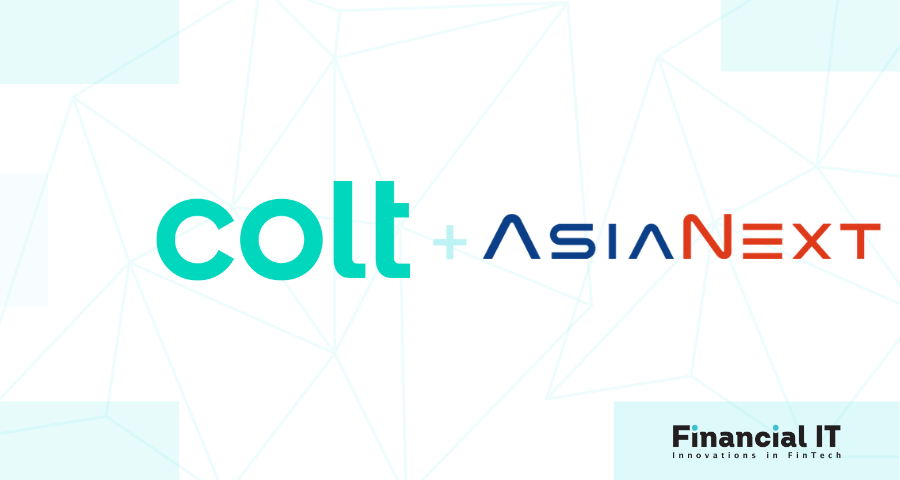
Colt Technology Services (Colt) the digital infrastructure company, today announced a new partnership with AsiaNext. The partnership will see AsiaNext benefit from a suite of Colt’s secure, high-performance digital infrastructure solutions – including Multicast Market Data in the Cloud and PrizmNet - to facilitate high-frequency trading of a variety of digital securities and crypto derivatives trading. AsiaNext is the first institutional-grade digital exchange to design this unique solution leveraging Colt Multicast Market Data in the Cloud, to connect to its buyers and sellers - and vice versa – bridging the gap between mainstream finance and secure digital assets trading.
The announcement comes as Asia experiences rapid growth in the trading of digital assets alongside significant global investment in the region’s crypto markets as it secures its position at the forefront of global cryptocurrency regulations.
AsiaNext, a trusted digital exchange for institutional investors in Asia and globally, will offer integrated listing, trading and post-trade services for digital assets. The exchange aims to create exciting new opportunities for institutional investors to trade digital assets in a secure environment and grow the overall crypto derivatives market in the region, which could help bring capital efficiencies to institutional investors.
Colt’s flexible, low-latency digital infrastructure solutions designed specifically for capital markets provide the perfect fit for AsiaNext’s strategic plans to innovate and grow the digital asset space: Colt PrizmNet guarantees deterministic low latencies for delivering data, software, content and financial services worldwide, while Colt Multicast Data in the Cloud enables organisations to securely host and distribute raw multicast data via a virtual PoP (Point-of-Presence) directly to external environments in its original format.
Russell Toop, Colt’s Team Lead, Capital Markets Asia said, “It’s an incredibly exciting time for Asia, as regulatory clarity helps it become a global hub for the crypto ecosystem, and we’re very proud to be named one of the first digital infrastructure partners for AsiaNext. Colt has long been a leading connectivity provider for the capital markets ecosystem and thousands of clients around the world trust our network. We continue to monitor the market and make infrastructure investments, providing connectivity solutions to key liquidity hubs which deliver the best possible latencies and performance. Our partnership with AsiaNext demonstrates our firm commitment to capital markets in Asia and across the world, and we’re excited to be part of its journey at the earliest stages as it sets out to bring digital assets to the mainstream.”
Yuen Keng Yin, Chief Technology Officer, AsiaNext said, “We are delighted that through Colt’s breakthrough capital markets solutions, our institutional investors will be able to quickly and easily access the benefits of a modern and trusted trading venue for digital assets. Their solutions support our investors in securing their position in this rapidly-growing market, so they can optimise their digital assets trading strategies and open up exciting new opportunities for their clients.”
AsiaNext is a joint venture between SBI Digital Asset Holdings and SIX. It has received in-principle approval of its Capital Markets Services licence from the Monetary Authority of Singapore and is in the process of obtaining its Recognised Market Operator licence.
Related News
- 06:00 am
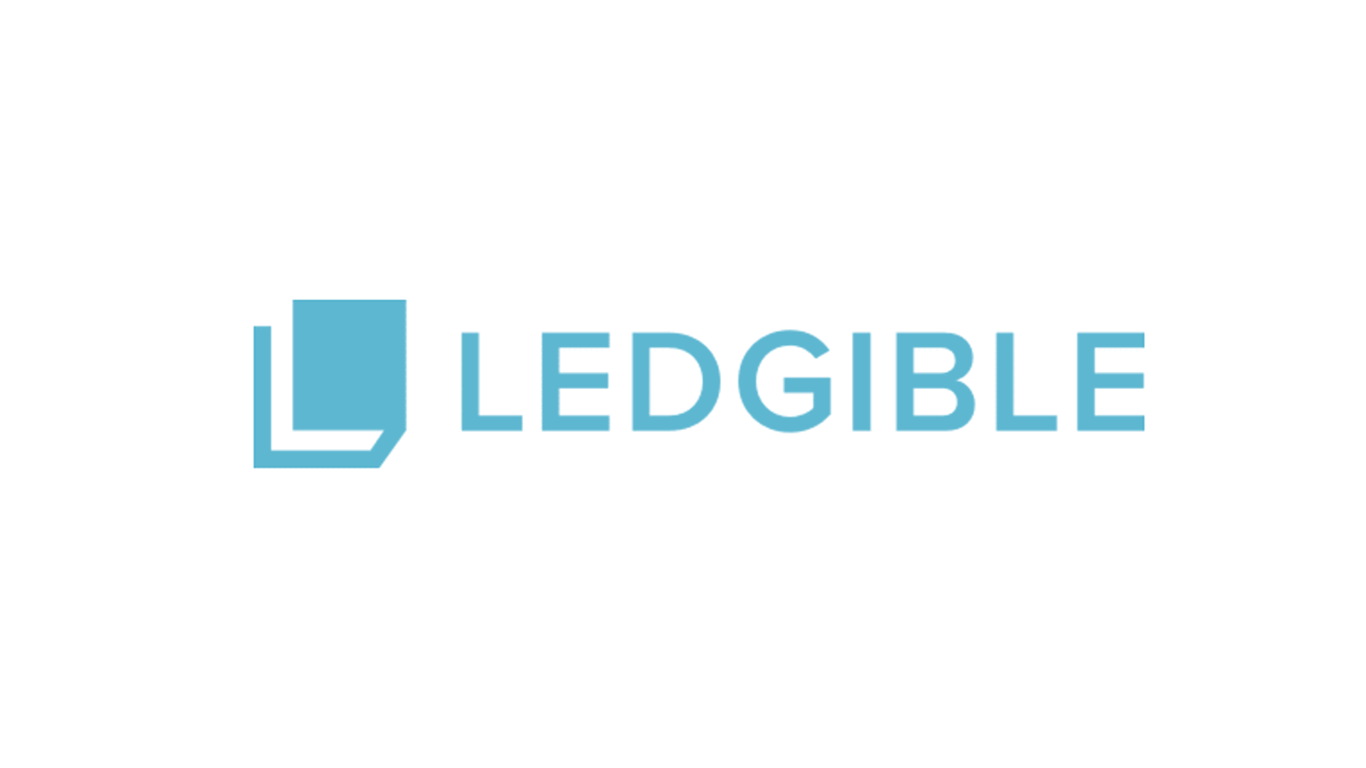
Nobody likes paying too much in taxes, including cryptocurrency investors. Different crypto transactions produce different tax consequences, and how long you own a digital currency usually matters.
Traders, investors, and crypto users alike can benefit from strategies to minimize their crypto taxes. Keep reading to explore seven ways to do just that.
1. Buy and hold cryptocurrency
Purchasing and not selling a digital asset generally incurs no tax liability. Buying and holding—or HODLing, for crypto natives—is the most conservative strategy for a tax-averse investor.
Cryptocurrency held in an investment portfolio may gain value, but this value is accrued on a tax-deferred basis. No tax liability is generated until the assets are withdrawn and their fair market value is assessed.
An investor who eventually withdraws cryptocurrency from their portfolio is likely to be taxed. Investors who buy and hold digital currencies for more than a year are generally subject to the long-term capital gains tax, which is a favorable rate for many taxpayers.
2. Invest in tax-advantaged accounts
Contributing money to a tax-advantaged retirement plan is another strategy that can minimize your crypto taxes. Individual retirement accounts (IRAs) and 401(k)s are two common investment structures that can potentially hold digital assets.
An IRA or 401(k) that is self-directed is typically qualified to invest in cryptocurrencies. Self-directed retirement plans are permitted to hold a wide variety of assets, inclusive of real estate and precious metals. A retirement fund that’s self-directed usually has additional administrative requirements.
An investor in a tax-advantaged retirement plan may receive tax benefits either in retirement or the year when a contribution is made. Retirement accounts that yield tax breaks almost always have restrictions, which may be related to annual contributions, annual income, or annual withdrawals.
3. Practice tax-loss harvesting
Another strategy that may reduce your crypto taxes is tax loss harvesting. This advanced tax minimization strategy involves selling underperforming assets at a financial loss to lower your overall tax bill.
Tax loss harvesting is a complicated strategy because investors need to understand all applicable tax regulations, including any rules related to the nature and timing of your crypto transactions. Harvesting tax losses also requires being generally knowledgeable about investing, and it probably helps to have a view on current market conditions.
If you’re invested in one cryptocurrency that’s massively outperforming, then you can perhaps consider selling the weakest performers in your portfolio. Any losses that you report are used to directly offset your capital gains.
4. Invest through a legal entity
Investors with an appetite for paperwork and legal complexity can consider reducing their crypto taxes by forming a separate legal entity. A limited liability company (LLC), corporation, partnership, or trust may be used to potentially minimize or eliminate your crypto tax burden.
Transacting with digital assets through a legal entity can help an investor to reduce their tax liability by aligning the legal entity structure with the investor's individual financial goals and tolerance for risk. The owner of a legal entity may benefit from a lower corporate tax rate or opportunities to offset crypto capital gains with business-related expenses.
Even professional investors are strongly advised to seek advice from legal and tax experts before using a separate legal entity to avoid crypto taxes. Laws and regulatory guidelines can be complex and in conflict across jurisdictions.
Forming, operating, and managing a separate legal entity also requires specialized knowledge and skill. The obligation to stay in regulatory compliance can feel burdensome if accounting is not your full-time job.
5. Gift your cryptocurrency
A somewhat straightforward way to avoid paying taxes on digital currency is to give your crypto away. Gifting cryptocurrency to friends and family or donating it to charity are two options to potentially reduce your crypto taxes.
Investors who donate cryptocurrency are generally not liable for capital gains taxes on the donated assets. And giving to a philanthropy that’s registered as a 501(c)3 nonprofit organization may provide additional tax benefits—that’s because crypto holders can potentially claim a tax deduction based on the fair market value of donated assets.
Cryptocurrency holders may face some restrictions on how much crypto they can give. Digital asset recipients may need to meet specific requirements, and some additional reporting might be necessary. Investors wishing to donate cryptocurrency to reduce their tax bills are advised to consult a tax professional before using this tax minimization strategy.
6. Move to a favourable tax jurisdiction
Digital asset holders wishing for a change of scenery can consider relocating to somewhere with favourable tax rules. This strategy for reducing your crypto taxes is the most logistically complicated but may confer significant tax benefits depending on the jurisdiction that you choose.
Countries, states, and cities worldwide have widely varying laws and regulations for digital assets. Some jurisdictions provide generous tax breaks to attract crypto companies and investors, while others have relaxed rules and requirements.
Crypto investors seriously considering a physical move need to consider all of the ramifications of this choice. An investor living abroad may still have tax obligations in their country of origin—and moving to a new place typically has major personal and professional implications.
7. Use a specific identification method
Crypto holders with advanced accounting skills—or a crypto accounting specialist on hand—can consider using a specific identification method to minimize their crypto taxes. Some jurisdictions, the United States included, permit taxpayers to specify the particular assets being sold when calculating capital gains or losses.
Different crypto assets in your portfolio can produce different tax consequences, depending on how much you paid for the asset and when you bought it, among other factors. Using the FIFO—first in, first out—method is a standard practice among tax and accounting professionals, but crypto investors wishing to minimize their taxes can opt for a more selective approach. Specifying only assets for tax reporting that you’ve held for more than a year, or those with the highest cost basis, are examples of specific identification accounting.
As with any advanced tax minimization strategy, using a specific identification method requires detailed record-keeping. Investors need to track purchase and sale dates, transaction amounts, and other pertinent information. Consulting with a professional or using specialized crypto accounting or tax software can help even beginner investors to reduce their tax burdens.
Related News

Chinmoy Banerjee
Corporate Vice President & Global Head – Banking & Business Process Services at Hexaware Technologies
In an ever-evolving financial landscape, Artificial Intelligence (AI) has emerged as a transformative force. see more

Vlad Lounegov
CEO at Mbanq
Mbanq has created a Banking-as-a-Service (BaaS) ecosystem to leve see more
- 08:00 am
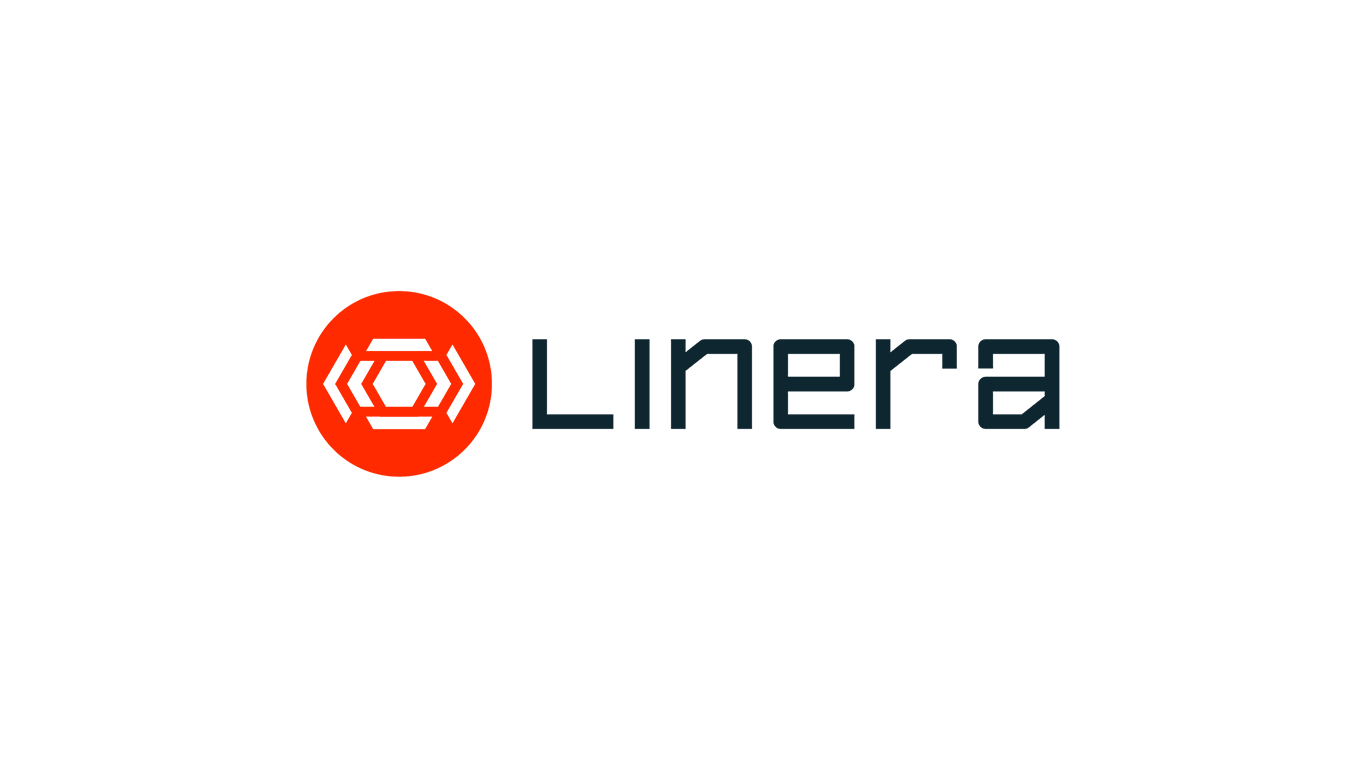
Linera, the first blockchain network scalable via microchains, has successfully closed an additional $6M round, led by Borderless Capital. Founded by Mathieu Baudet, former Meta researcher on the Novi digital payments wallet and a cryptographic protocols specialist, Linera’s pioneering technology aims to bring web2 scalability to web3 applications by introducing an unlimited number of user chains powered by an elastically scalable network.
Linera has now secured a total of $12M in seed funding, with the most recent $6 million follow-on investment round led by Borderless Capital. Notable participants include Laser Digital (Nomura), DFG, Jsquare, Cadenza, Block1, Eterna Capital, MH Ventures, Matrixport, L2IV, ArkStream, Flow Traders, GSR Markets, and Open Web Collective (OWC), alongside continued support from a16z crypto, Tribe Capital, and Cygni Capital, who participated in the initial seed round.
“Among new web3 architectures emerging like the move away from a single monolithic blockchain, Linera’s microchains are a completely new and necessary evolution. Further, Linera’s capacity for linear scaling is designed to support millions and conceivably billions of simultaneous transactions. And, while unprecedented, this kind of performance and reliability is essential for web3 to actually scale applications like payments, messaging, trading, AI, and more to billions of users around the world,” said Alpen Sheth, Senior Partner at Borderless Capital.
“Linera has made significant progress since we led their initial seed round last year, and we’re excited to expand our support for the project. Mathieu and the Linera team have designed a truly innovative multi-chain architecture that unlocks a broader design space for developers and their end users. We can’t wait to see how the ecosystem takes shape and the utilities it enables as Linera advances into the devnet and testnet phases,” said Ali Yahya, General Partner at a16z crypto.
Linera recently made its initial software development kit (SDK) available for testing, targeting Rust developers. Thanks to the new funding, Linera will be expanding the team, launching a devnet and a testnet for the protocol and fostering a strategic presence in the APAC region while continuing to grow their developer academy.
From microchains to mass-scalable applications
The competition for blockspace in traditional Layer 1 blockchains, coupled with limited production rates and block sizes, creates a bottleneck during traffic peaks, leaving users outpriced or delayed, rendering the infrastructure effectively unavailable.
“We’ve taken a step back to completely redesign a blockchain infrastructure that scales from the start,” said Mathieu Baudet, founder and CEO of Linera. “Linera’s unique multi-chain architecture ensures predictable performance, responsiveness, and robust security at Internet scale.”
“In the race to scale blockchain, an infrastructure that scales from the get-go will beat out any temporary patchwork done on existing chains in the long run,” says James Wo, founder and CEO of DFG. “We’re proud to support Linera’s robust multi-chain design that makes Web3 really as usable as Web2, finally.”
Linera empowers developers to create high-speed web3 applications used by a large number of active users in parallel, revolutionizing decentralized infrastructure for a variety of use cases, including retail payments, gaming micro-payments, messaging, proprietary trading, and blockchain bridges.
The Linera system scales by adding chains, not by increasing the size or the production rate of blocks. Its groundbreaking microchain model grants each individual user their own lightweight chains, which integrate into browser extensions or mobile devices for streamlined web3 app interactions within their wallets. During times of high demand, Linera’s validators expand dynamically like elastic web services.
Linera’s innovative design is rooted in the expertise that Mathieu Baudet acquired at Meta while contributing to the Libra (now Diem) blockchain and co-authoring the academic paper “FastPay“, which laid the foundations for the Linera protocol. Bernadette Cay, Linera’s COO, brings extensive experience in launching products from Google and MoPub, the mobile ad exchange acquired by Twitter.
Related News
- 08:00 am
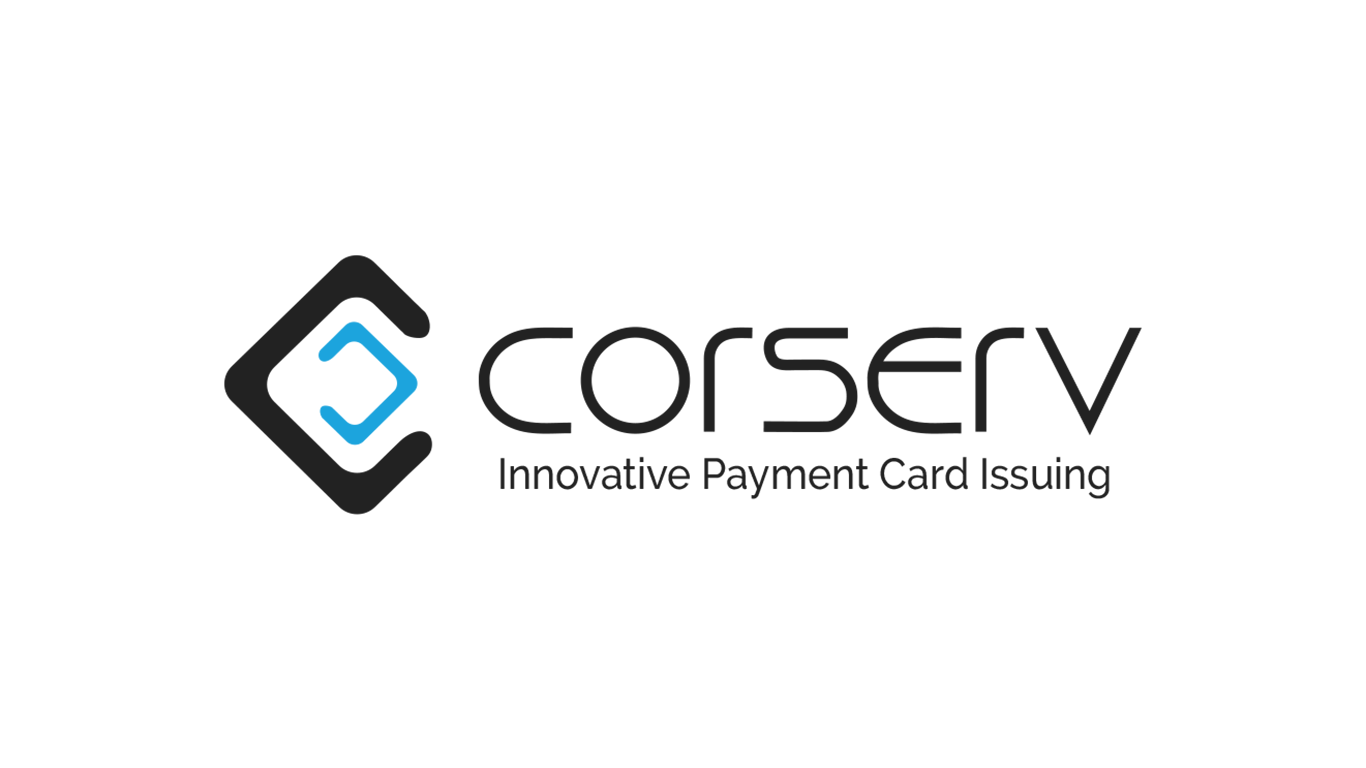
Corserv, a company that empowers banks and fintechs with payment programs, a company that empowers banks and fintechs with payment programs, has partnered with Ohio-based Peoples Bank to implement an industry-leading credit card program to serve their commercial, small business, nonprofit, local municipalities, and consumer customers.
Peoples Bank is a $8.8 billion full-service relationship bank headquartered in Marietta, Ohio with a total of 132 bank offices in Ohio, Kentucky, West Virginia, Virginia, Maryland, and the District of Columbia. Peoples Bank is moving from an Agent Bank program to Corserv’s program where they now own the credit card profits and losses and are able to make credit decisions using its relationship knowledge of applicants as a factor in approving credit.
Corserv’s comprehensive program enables Peoples Bank to offer 14 different credit card products, including commercial and business cards, traditional rewards cards, a low-rate card, a high-rewards world card and secured cards for those building their credit. Peoples Bank expects credit cards to be a great performing product in the bank, given that Corserv’s bank partners averaged a 7.7% Return on Assets (ROA) last year from its credit card programs. Peoples Bank commercial and business customers will now have increased control capabilities with Corserv’s business administrative interface allowing them to issue new cards, set spend controls, and pay vendors with virtual cards faster.
“With Corserv’s credit card program, Peoples Bank can now serve our business customers with features like free expense reporting and detailed transaction reports that include level 2 and level 3 data,” said Tom Frawley, Senior Vice President of Peoples Bank. “Our new card products have competitive rewards programs while at the same time providing a long-term product for our consumer and small business customers with relationship-based APRs lower than the industry average.”
“Our turnkey card issuing program enables Peoples Bank to provide the best banking experience for its customers,” said Anil Goyal, CEO of Corserv. “Corserv’s program minimizes the disruption, cost and resources needed for typical card programs and gives Peoples Bank the payment card features that compete with the largest banks while serving the specific needs of their communities.”
Peoples Bank’s staff also benefits from Corserv’s program as they will have 24/7 access to its customer support call centre in addition to access to support tools to serve their customers locally, something Peoples Bank could not do in its Agent Bank program.
Related News
- 04:00 am
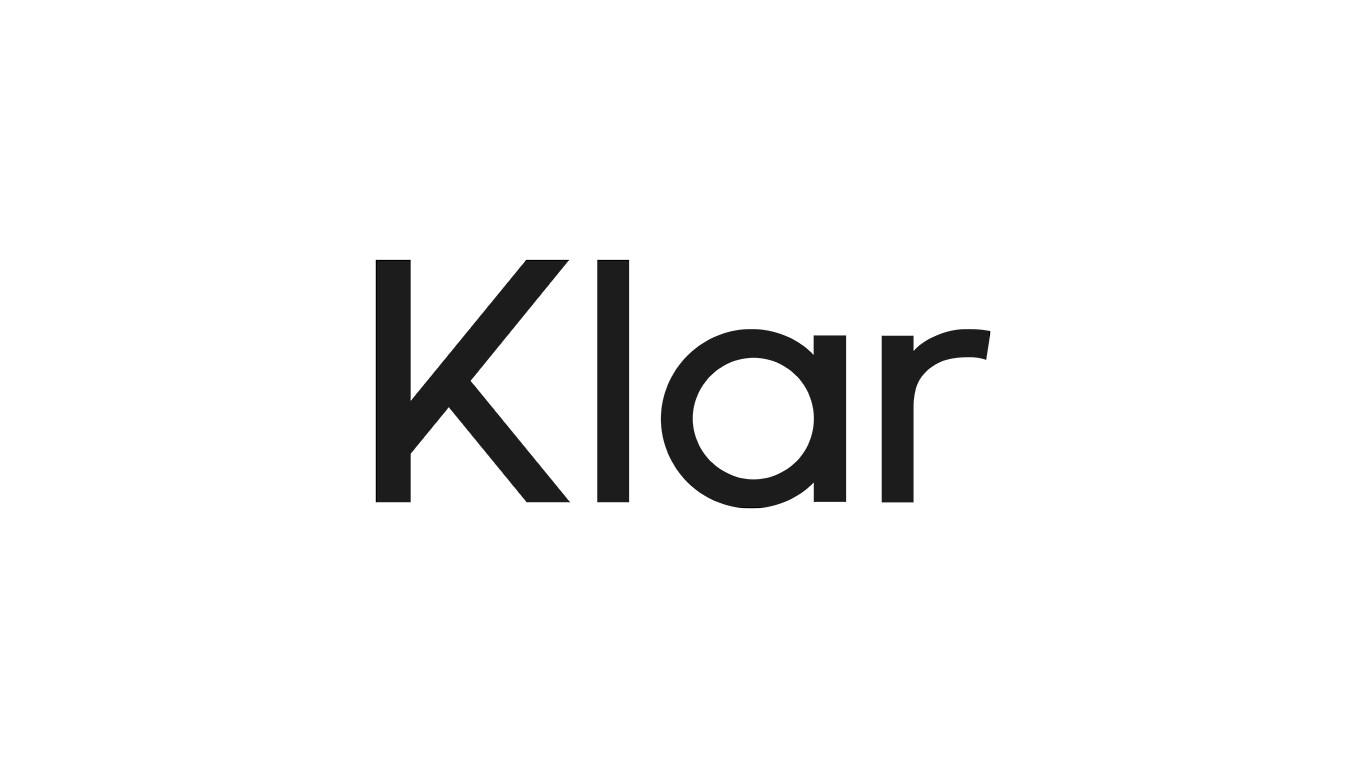
Klar, S.A. de C.V. (Klar), the Mexico City-based digital financial services platform, announced today that it has secured a $100 million credit facility from Victory Park Capital (“VPC”), a global alternative investment firm specializing in private credit. The financial support from VPC will propel Klar during a moment of transformative growth for the company, as it expands product offers that provide Mexicans with enhanced access to reliable, simple and transparent credit cards.
“We are dedicated to democratizing access to credit in Mexico because we believe that a more inclusive and efficient financial system means more for everyone: more opportunities, more customer satisfaction and ultimately, more prosperity,” said Stefan Möller, CEO of Klar. “There is no shortage of quality financial products, but they serve a limited population. We are changing that paradigm. More credit for more people — that is our premise.”
The credit facility with VPC comes at a crucial time for the Mexican financial sector. Klar is experiencing exponential growth and has taken a leadership position in the past year, providing millions of Mexicans with accessible credit lines and financial products. Since its launch in 2019, Klar has quickly gained a loyal customer base thanks to its focus on technology and user experience.
“VPC is committed to supporting Klar in its mission to enhance financial inclusion in Mexico,” said Jason Brown, Partner at VPC. “Klar has built a product that fully meets the needs of a market where credit access remains a challenge and has demonstrated its ability to successfully scale in Mexico. We believe strongly in Klar’s growth potential and look forward to partnering with them as they continue serving the unbanked and underbanked.”
Klar’s solutions for consumers include a credit card that offers cash back on all purchases, the ability to make mobile payments, and access to buy now, pay later services. Klar also offers consumers salary advances and credit lines. Klar’s data analytics capabilities are the cornerstone for customizing its credit lines, accounts, and products to provide tailored solutions to its customers. Klar and its affiliates work closely with Mexican financial regulators to ensure that their financial products are secure and accessible to all customers.
Related News
- 08:00 am

A digital payment company Wirex has partnered with Sumsub, a global full-cycle verification platform. Sumsub will provide Wirex with its Transaction Monitoring capabilities, Travel Rule compliance solutions for virtual asset transfers, and its KYC (Know Your Customer) software to verify the identity of new clients.
The Financial Action Task Force (FAFT) is enforcing virtual asset service providers (VASPs) must adhere to Anti-Money Laundering (AML) regulations to uphold transparency and accountability standards, with UK regulations coming into effect on September 1, 2023. Sumsub’s solution enables secure Travel Rule information transfers between virtual VASPs, conducting all necessary KYC checks, AML screening, and verification orchestration in accordance with regulatory requirements and Wirex’s business needs.
The Travel Rule solution can be easily integrated with Sumsub’s advanced transaction monitoring (KYT) solution. Transaction monitoring encompasses a flexible set of procedures typically including analysing sender/receiver profiles, calculating risk scores, and cross-checking KYC and transaction data.
Sumsub’s Transaction Monitoring solutions will assist Wirex in preventing financial fraud and maintaining compliance. Recent internal data revealed 70% of fraudulent activity occurs after the Know-Your-Customer (KYC) onboarding stage, highlighting the necessity for continuous monitoring.
"We are thrilled to be partnered with Sumsub to ensure seamless compliance with the upcoming regulatory requirements for virtual asset service providers. By utilising Sumsub's Transaction Monitoring capabilities and Travel Rule compliance solutions, we’re committed to upholding the highest standards of security and protection for our user verification processes and our users’ virtual asset transactions,” said Pavel Matveev, CEO and Co-Founder of Wirex.
"The regulatory horizon is becoming increasingly complex, particularly for firms in the digital asset space. Sumsub is committed to providing advanced verification and compliance solutions that empower businesses to navigate the evolving landscape - beyond the initial onboarding stage. This partnership with Wirex signifies a mutual commitment to maintaining the integrity of virtual asset transfers and ongoing transactions,” explained Andrew Sever, co-founder and CEO of Sumsub. “Our full-cycle verification solution offers a comprehensive picture of all customer risk profiles, allowing our clients to make better-informed decisions and keep their businesses safe.”
Related News
- 05:00 am

PCI Pal, announced today that it has renewed its membership of the PCI Security Standards Council (PCI SSC) as a Principal Participating Organization. PCI Pal will help drive the future of global payment security with a strategic level of leadership, participation, and influence with the Council.
The PCI SSC leads the global effort to increase payment security by providing flexible, industry-driven, and effective data security standards and programs. Global industry collaboration is critical to this mission. The Council’s Participating Organizations program brings together industry leaders to strategize about how to protect payment data from the latest threats and to anticipate the needs of an ever-changing payment ecosystem.
As a Principal Participating Organization, PCI Pal will provide strategic direction to help shape the future of the Council. PCI Pal will impact the direction of PCI SSC standards, drive technical discussions, and have input into Council initiatives.
“Every day, companies and organizations across the globe face an ever-changing payment landscape with new and evolved threats attacking to their systems, and data,” said Lance Johnson, Executive Director of the PCI Security Standards Council. “By joining as a Principal Participating Organization, PCI Pal will have a significant impact on how PCI SSC helps them address these challenges especially the direction and development of PCI Security Standards and resources that help organizations prevent, detect, and mitigate attacks on global payment data.”
Geoff Forsyth, Chief Information Security Officer, PCI Pal, said: “Being a Participating Organization gives us the opportunity to actively participate in the ongoing development of the Payment Card Industry Data Security Standard and other security standards. As leading experts within the industry, we are proud to play our part in helping to shape future standards, so they are both relevant and effective. It also demonstrates our firm commitment to data security, compliance, and payments by supporting our customers in upholding the PCI DSS requirements.”
Related News
- 07:00 am
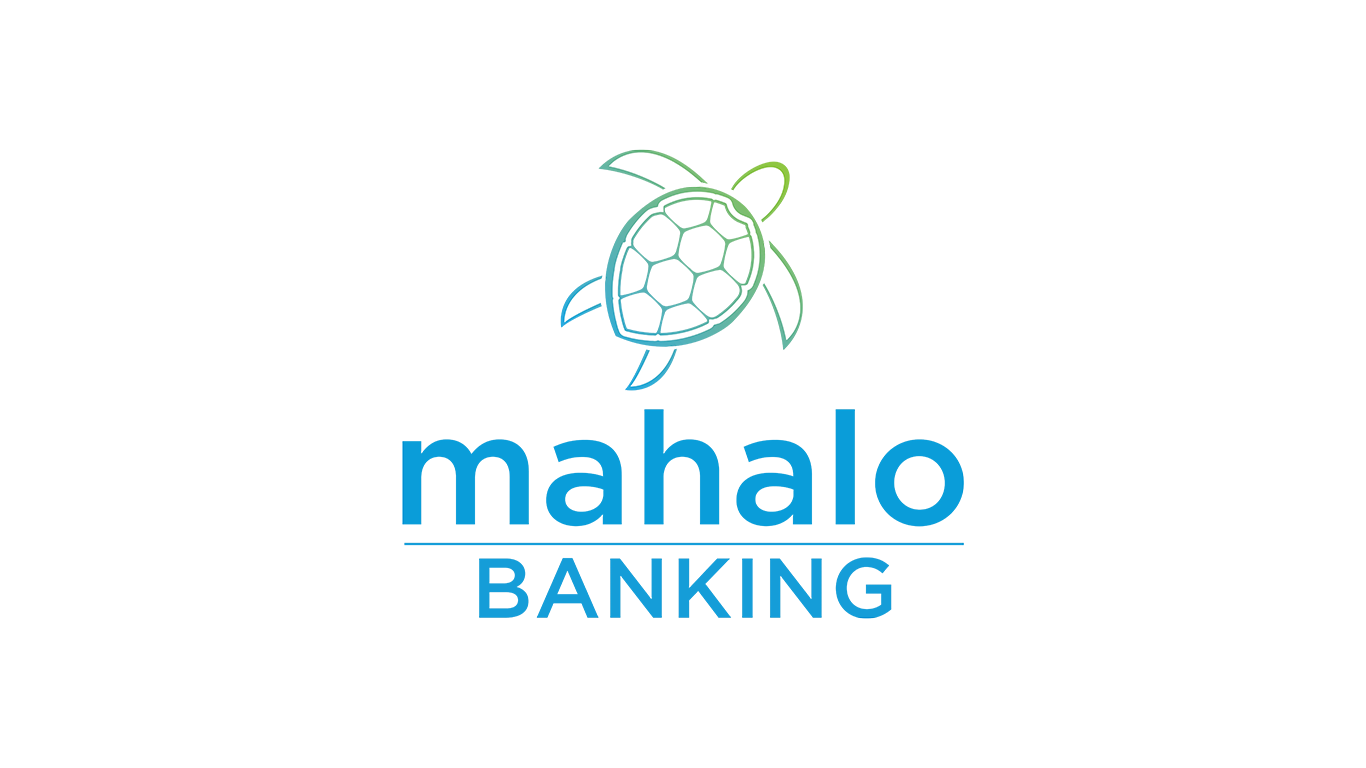
Mahalo Banking, a CUSO that provides online and mobile banking solutions for credit unions, has been selected as a 2023 Finovate Awards finalist for the categories of Best Fintech Partnership and Excellence in Financial Inclusion. The Finovate Awards recognize the companies driving fintech innovation forward and the individuals introducing new ideas to the industry.
Mahalo is the only reseller of digital banking software selected as a Finovate Awards finalist for its Thoughtful Banking™ functionality, engineered to deliver humanized digital banking capabilities that cater to the neurodiversity of members. Finovate has also recognized Mahalo for its collaboration with credit union partner Park View Federal Credit Union (Park View). Mahalo worked closely with Park View during the development of its Thoughtful Banking features to ensure the enhancements would have a meaningful impact on the member experience.
Tanya Holland, Director of Digital Operations with Park View said, “Our team was excited by the opportunity to collaborate with Mahalo and expand our digital capabilities. We strived to find a digital banking partner who values consistent innovation to match the industry’s pace and aims to deliver an exceptional experience for our members. Mahalo has proved to be an incredible partner that supports our digital transformation goals and has taken our online and mobile experiences to a whole new level with their neurodiversity features.”
“We are honoured to be among the few companies selected as a multiple-category Finovate finalist, as well as the only digital banking solution reseller recognized for our member experience platform innovations. These nominations signify the value of our technology both to the credit unions we serve and the advancement of the industry’s inclusivity as a whole,” said Denny Howell, COO of Mahalo. “Our team is committed to ensuring every credit union is equipped with digital banking capabilities to fully support their entire membership base, and that journey all began with the help of Park View. We appreciate their trust and willingness to share insights from real members that helped us collaboratively shape the functionality of our enhanced platform.”
Winners of the 2023 Finovate Awards will be announced during the FinovateFall Conference at the Marriott Marquis Times Square from September 11-13, 2023. This yearly conference hosts a variety of leaders from banks, fintechs, platform players, regulators, investors and other financial institutions re-defining the future of financial services. FinovateFall features live demos of innovative fintech solutions, expert advice from key influencers and unparalleled networking opportunities.









